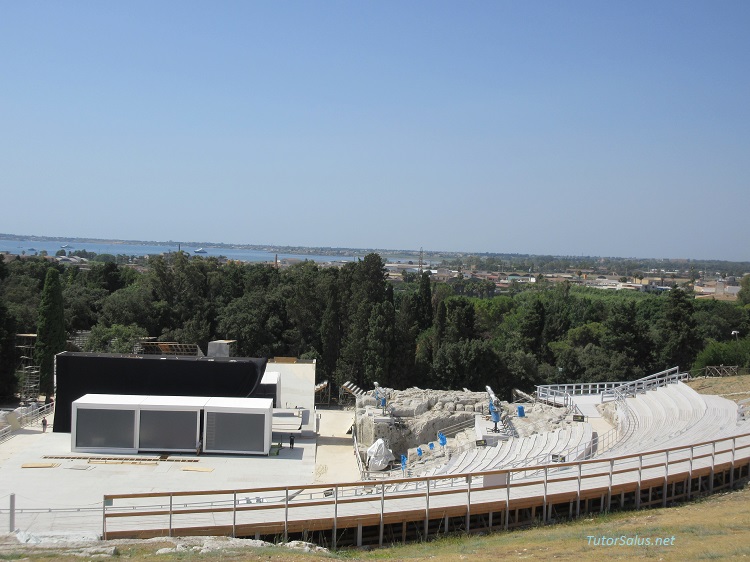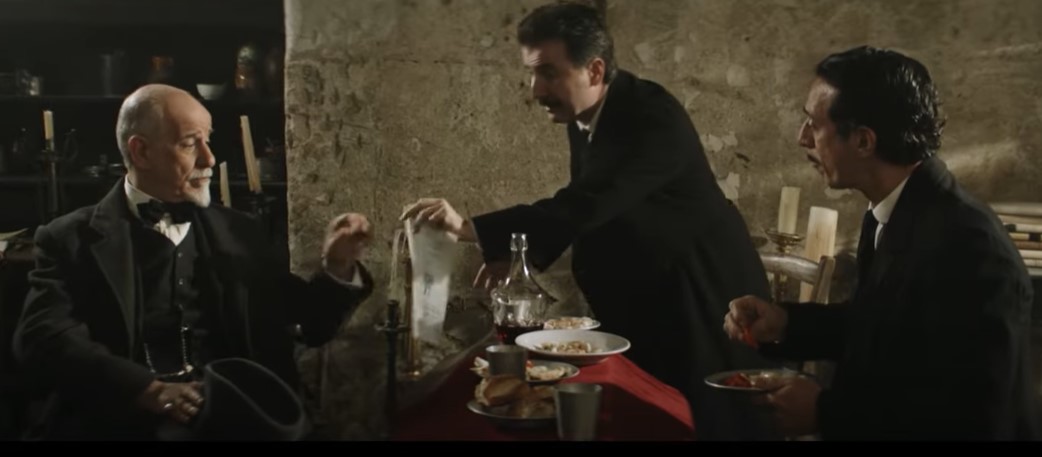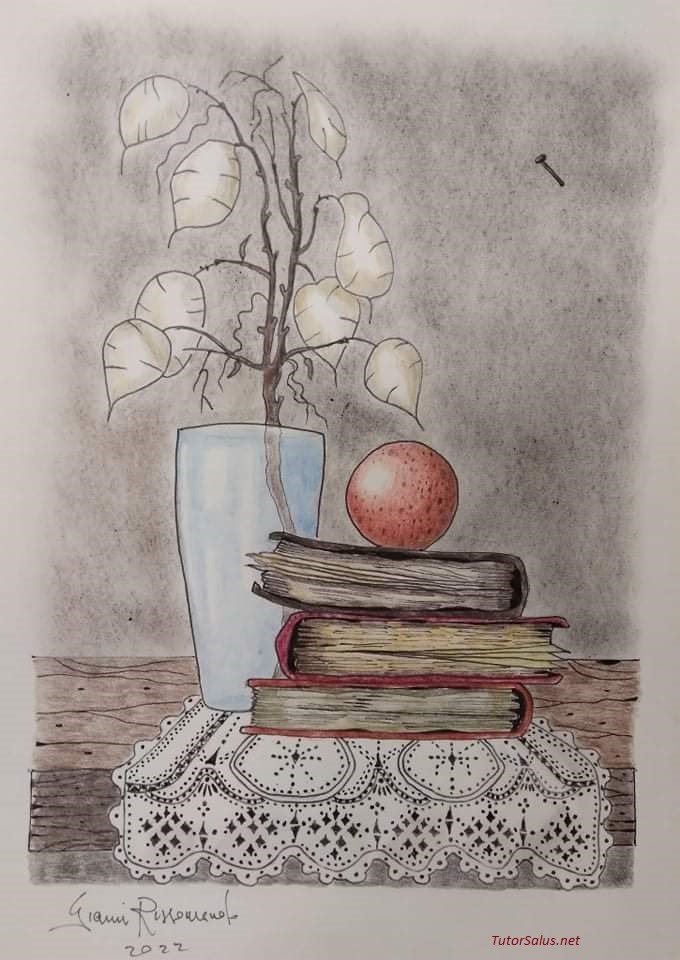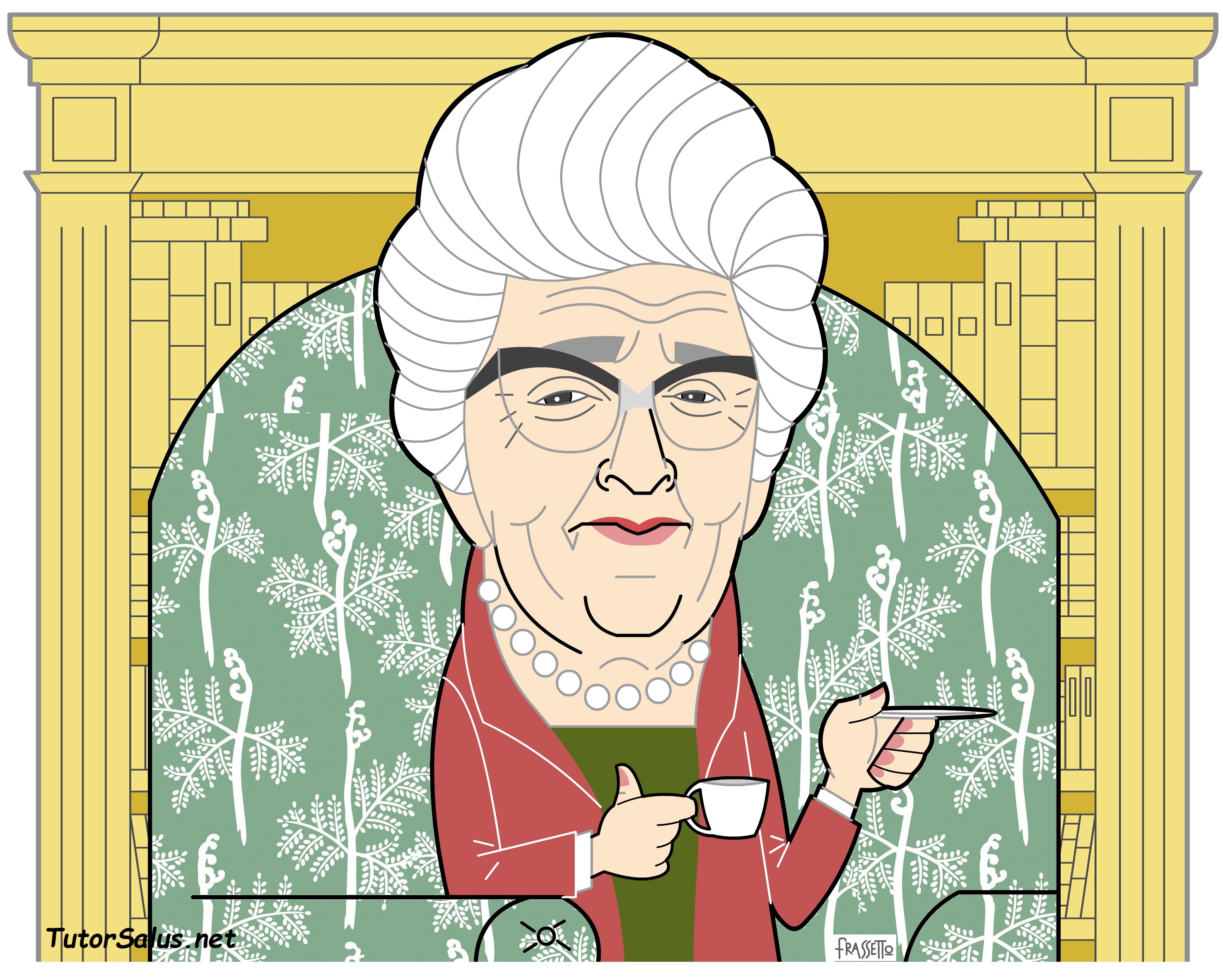‘Iphigenia in Tauride’, directed by Jacopo Gassman[1] - Greek Theater, Siracusa 2022.

In the picture : staging of ‘Iphigenia in Tauride’, directed by Jacopo Gassmann – Siracusa, Greek Theatre, ‘57° Stagione Teatro Greco 17 maggio – 9 luglio 2022’, edited by ‘Fondazione I.N.D.A. Istituto Nazionale Dramma Antico’ www.indafondazione.org / The final applause was accompanied by 'Rock bottom riser' (Bill Callahan).
The Messenger’s stage costume is a grey mechanic-spaceman overalls, the only one difference on an ancient scene where the time stopped to celebrate deadly rituals, established by gods.
A real break-scheme man is here the Messenger, through whom the director Jacopo Gassmann has been able to bring to life to the otherwise abrupt ending[2] by Euripides[3] who made Iphigenia a motionless ‘continuum’ with the killed doe – right in the foreground of the stage - from sacrificed to sacred, a feared relic and indifferent to further sacrifices, in the museum whose the lucid shrines with supposed human skeletons overbearingly offer their finds, with the addition of that bull’s head carried in arms as an unuseful trophy.
“There is some disorder among the gods…”, notes the prince Orestes, here fugitive and undercover from Argo with his fellow Pilade.
A disorder not of humans, as a matter of facts, but of gods who this rite wanted to get rid of the human ‘desire’ which, differently from any animal istinct, cannot be governed.
Iphigenia however – notwithstanding she was removed by Artemis goddess in the country of Aulis from that sacrificial killing decided by her father and king Agamemnon, on suggestion of the shrewd Odysseus – has now passed to executioner among the inhabitants of Tauris - she herself who was a predestined victim - but ‘sacred’ motionless not justiciable, of every man from abroad who here can land : a princess on whose naivety many people still keep on banqueting.
Until when?
Tauris is the present Crimea which was thought to be located further the ‘obscure Simplegadi’[4] : the Mycenaean dialect at the beginning of Greek language translates ‘messenger’ as ἄγγελος.
But, in comparison with the text by Euripides, innovator indeed even if obliged to the ancient tune, the director brings a decisive change of pace due to ‘thinking’, and therefore to the intervention of humans : that happens when the Messenger comes in.
A message can be honest or dishonest, can save or destroy also when the only find is the voice of someone who is not here, his or her phrases, his or her accents : here is right the message of a Messenger that makes the help by the divine Athena, conclusive deus ex-machina, a means not so unreachable as it was in the original text by Euripides where the solution remains, due to tradition requirements, outside the human.
“It is up to humans to make the gods credible…”, anticipated Iphigenia who enters the temple going downstairs, instead of going upstairs. The deceit infact hovers in the work of Euripides, and with it the reliability, proved or just presumed.
By the gods first of all Orestes says he has been deceived, as he put his trust into Apollo god who instead persuaded him to kill his mother Clytemnestra, wife of Agamemnon, together with her lover, the noble but cowardly Aegisthus. What other way remained after that double honour murder if not run away from his own kingdom, and also persecuted by the fury of the ‘Erinyes’ ? Now the king of Sparta Menelaus, brother of Agamemnon and already propulsor of that damned war against Troy, dominates on Argo too!
But also Iphigenia says she has been deceived by Artemis, notwithstanding she was withdrawn by the goddess from the sacrifice, because here she is a prisoner – even if a priestly prisoner – at the Tauerns, where she remais as a foreign woman, together with all the kidnapped virgins , to serve in a temple about which no one in the world knows anything.
The choreography, also formally, is an essential element and mainly in the Ancient Theatre where actors have literally to move and walk for meters on the stage : thanks to a very agile acting and tight so that no one is distracted from listening, the scene dialogues have been really close-knit and impressive in front of thousands of viewers.
A message can live only if it’s well translated[5] you see : when it becomes just a find to be delivered from hand to hand, it loses any sense and meaning.
Toante, king of Tauris, listens to the Messenger and suddenly begins to consider the uselessness of a frantic chase, Orestes and Iphigenia escaping, until the will of Artemis, the goddess, completely falls. Infact, when Athena comes in and would like to stop Toante, ready for vengeance, he himself was already persuaded not to go on : and the automatism of the Fate stops.
“What’s more rewarding than a trusted tongue?”, then Iphigenia[6] said to her companions, weighing up a possible crossroads, which Euripides didn’t explore.
By means of a translation capability that moves, without lying, between ‘reliability’ and ‘deceit’, how would you name the ruse devised by Iphigenia to save herself and Oreste ?
And, on the opposite hand, how would you name the ruse devised by king Agamemnon in order to attract his firstborn daughter to the sacrifice ?
To the ‘interpretation’ only ‘thinking’ can access, as ‘thinking’ makes ascribable of sanction the offer, and the appointment, with anyone in the universe : no longer sacred, but not inevitably sacrificed and motionless, also an ancient message can be put in motion again and made relevant without infringing it.
Euripides accepted that Iphigenia would only be transferred from Tauris, going on with her deadly ritual among humans elsewhere. Thanks to the direction of Jacopo Gassmann, Iphigenia is able to regain both her name and position, and able to refuse being manipulated, that is able to refuse to condemn to death.
There aren’t rituals, as a matter of facts, to which the reliability can be delegated : it is up to humans.
Marina Bilotta Membretti / Cernusco sul Naviglio - September 6, 2022
[1] Jacopo Gassmann, 42 years the last June is, with ‘Ifigenia in Tauride’ by Euripides, at his debut at the Ancient Theatre. Graduated from the ‘New York University’ in ‘film direction’ regia cinematografica’ has developed a few theatrical works : ‘Il minore, ovvero preferirei di no’; ‘La voce a te dovuta’; ‘Il più bel gioco del mondo’. He translated texts, adapting them for the theatre; in 2020 he directed ‘Niente di me’, by Arne Lygre for the ‘Biennale Teatro’ of Venice.
[2] ‘Ifigenia in Tauride’ ends with an assertion said by Athena goddess : “The need dominates not only you, Toante, but also gods themselves!”, cited by : ‘Ifigenia in Tauride’, a cura di F.Ferrari con testo greco – BUR Rizzoli (2019) p. 195.
[3] Euripides, the youngest among the ancient poets of tragedies, was born in 480 b.C. by Salamina and died at Pella, in Macedonia in 406 b.C. He was fond of studying but he didn’t receive immediately from public praises and approvals, his texts weren’t traditional, on the contrary they were questioning the spectator : ‘Alcesti’ (438 b.C.), ‘Medea’ (431 b.C.), ‘Elena’ (412 b.C.), ‘Oreste’ (408 b.C.) are a few of his own works come down to us. ‘Baccanti’, ‘Ifigenia in Aulide’ and ‘Ifigenia in Tauride’ were performed after Euripides death on initiative of his son.
[4] ‘Symplegades’ were, in the mythology, rocky islands and very near one to the other so that their crossing was dangerous indeed : overcoming was rarely possible, as instead could here Orestes and Pylades. “Now we possess what we went through the Symplegades, what we went through the inhospitable sea”, Orestes is speaking on the deck of the vessel, ready to leave Tauris with his sister Iphigenia and his fellow Pylades. Cited by ‘Ifigenia in Tauride’, a cura di F.Ferrari con testo greco – BUR Rizzoli (2019), p.189.
[5] “The written words on the folds of the tablet I’ll say aloud, so that you can report them to my loved ones”, Iphigenia entrusts her message to Pylades as she decided to rescue him and Orestes because they come from Argo, but before recognizing their identity. Cited by ‘Ifigenia in Tauride’, a cura di F.Ferrari con testo greco – BUR Rizzoli (2019), p.145.
[6] Cited by : ‘Ifigenia in Tauride’, a cura di F.Ferrari con testo greco – BUR Rizzoli (2019), p.165





